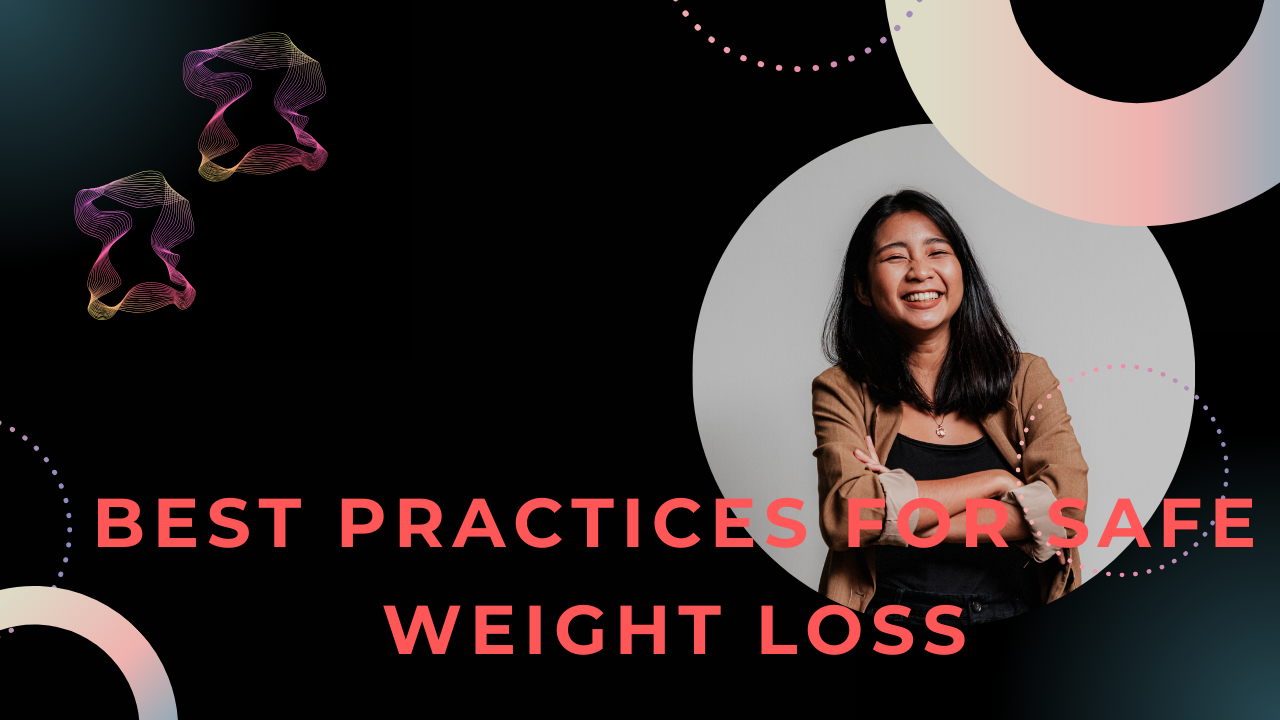Best Practices for Safe Weight Loss
The milestones to fitness are losing and then maintaining a healthy weight; however, the journey to losing weight is so burdened with lots of diets and trends. Thus, to join the journey for safe and sustainable weight loss, embracing healthy practices is key. Here are some of the best practices for safe weight loss that can help one get on the healthier lifestyle track.
Set Realistic Goals
Achievable goals would be one of the first steps in a successful weight loss journey. Target losing one to two pounds a week; while that is not very efficient in quick weight loss, it is relatively safer and more sustainable due to the tendency of rapid weight loss to result in losing muscles and deficiencies in nutrition. Rather than a certain number on the scale, you could be aiming to achieve health-targeted goals such as improving fitness levels or lowering body fat percentages. This is much healthier and motivating rather than trying for a certain number.
Best Practices for Safe Weight Loss
A healthy diet forms the base to weight loss and overall good health. Focus on including whole foods such as fruits, vegetables, whole grains, lean proteins, and healthy fats in your diet. These will give you the correct nutrients while keeping you full and manage the calorie intake easily. Conscious eating habits such as portion control greatly contribute to not overeating. Smaller plates can really contribute to portions. Further, decreasing intake of processed foods and sugar drinks will help you lose weight because most of them are calorie providers with minimal nutritional value.
Hydrate Yourself
Hydration is the most important and most often neglected aspect of losing weight. Drinking water all day is the best way to keep all of your body functions and can also help in controlling hunger. Strive for eight to ten glasses of water per day. Furthermore, drinking water before meals is another way to decrease the amount of food eaten altogether. Cut back on sodas and energy drinks. These have calories that will undermine any weight loss efforts.
Maintain Active Lifestyle
Exercise is also an important factor to achieve weight loss success. Well, you can easily find all that which you enjoy the most. Be it walking, swimming, dancing, cycling, or even anything else, your fun being will keep you going towards fitness goals. Do both aerobic and strength training, maximize the workout benefits. First, most people can meet the goal of engaging in at least 150 minutes of moderate aerobic activity each week, supplemented by muscle-strengthening activity on two or more days a week. The point is: regular physical activity burns calories and helps preserve muscle mass alongside numerous other health benefits.
Monitor Your Progress

Accountability and motivation are among the factors of tracking weight loss. Monitoring your intake is possible through writing down food intake in the food diary. This practice will also make you notice patterns on how you normally eat. Besides, technology can allow you to monitor food intake and activity by tracking progress on apps or through wearable devices. Thus, you get to track your journey through reviewing what has happened before, with a change or celebration along the way.
Sleep as Many Hours as Possible Sleep, one of the oft neglected factors for weight reduction is sleep. The inappropriate timing of sleep is badly interlinked with the working and regulation of appetite-control as well as hunger regulating hormones. Therefore, these get impaired and it gets relatively more complicated to maintain weight by not gaining more weight as that is the opposite intention which is not achievable unless that person sleeps from at least seven to nine hours of quality sleep in night and the habit of fixed hours of sleep develops because any delay in sleep and time wastes the quality of good slumber. This means that reducing screen time before bed and creating a calm environment will help you sleep better, which is very important in maintaining good health and losing weight.
Seek Professional Help
If you are unsure of how to begin or have health issues, get professional advice. A registered dietitian will give you a personalized meal plan according to your requirements and preferences. You may also seek guidance from a doctor or a nutritionist on safe practices for losing weight and potential health conditions that may influence the process.
Be Cognizant of Emotional Eating
The biggest challenge that might result in failed weight loss is emotional eating. The challenge is overcome by learning the triggers leading to overeating. When you identify the situation or emotions causing you to eat, you can learn strategies for handling those situations. Techniques in mindfulness help one recognize hunger cues and emotional triggers, making it easy to decide about food.
Conclusion
Weight Loss Safely
Safe weight loss does not come overnight. To achieve this, it has to be backed by energy, time, and effort. One of the first steps to be taken will be modest goal setting and a healthy diet accompanied by exercising, monitoring of your progress, and sometimes having support may be required in order for the effects to last in the long term. Truth is, becoming healthier would be more so about choosing the lifestyle that leads you to wellness and happiness as opposed to just shedding pounds.
It is yours now. Go ahead and ask me for any further editing or other information you need!
Readmore…https://totalinsights.online/wp-admin/post.php?post=26246&action=edit

